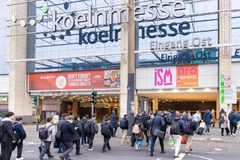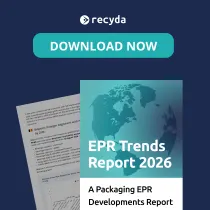Trinseo launches Italian depolymerization facility for circular acrylic solutions
04 Jul 2024 --- Trinseo, a specialty material solutions provider, has opened its polymethyl methacrylate (PMMA) depolymerization facility in Rho, Italy. The pilot facility houses next-generation recycling technology, which helps advance a circular infrastructure for acrylic solutions.
Depolymerization is a chemical recycling process that returns acrylic solutions to the constituent monomer, methyl methacrylate (MMA). Complementary to other recycling technologies, depolymerization helps close the loop for acrylic recycling with several advantages over traditional processes, highlights Trinseo.
“We are thrilled about the opening of our depolymerization facility, which will help advance our goal to support a circular economy,” says Francesca Reverberi, senior vice president of Engineered Materials and chief sustainability officer at Trinseo.
“Our company remains committed to our sustainability goals, including investing in new recycling technologies that can support our customers in reaching their sustainability goals as well.”

Circularity in acrylics
Depolymerization technology recycles acrylic solutions — including PMMA sheets — which previously could not be mechanically recycled.
Additionally, returning the material to its monomer form allows additives and contaminants to be removed from pre- and post-consumer acrylic products, enabling more PMMA to be recycled.
Community event celebrating the opening of the new PMMA Depolymerization pilot facility in Rho, Italy.Trinseo’s PMMA depolymerization facility utilizes an advanced continuous process to produce high-purity regenerated MMA from pre- and post-consumer acrylic solutions.
Trinseo’s depolymerization technology leverages findings from the MMAtwo Consortium, a collaborative initiative funded by the EU’s Horizon 2020 research and innovation program, to develop a new value chain for pre- and post-consumer PMMA.
It also uses a versatile recycling process to convert this waste into a regenerated monomer, reducing its carbon footprint compared to virgin MMA.
“Today is a critical milestone in our sustainability journey,” says Han Hendriks, chief technology officer at Trinseo.
“Depolymerization expands our recycled feedstock capabilities, which in turn, will help us innovate new solutions. With this new capability, we can build a more robust recycled acrylics portfolio to better meet the evolving needs of our customers.”
Finished product applications
Trinseo utilizes its recycled MMA (rMMA) generated at its depolymerization facility in the Altuglas and Plexiglas R-Life product portfolios.
Trinseo can produce rMMA comparable to virgin raw materials through this new facility.
This enables use in high-demand applications, such as vehicle tail lights or caravan windows that require high optical quality.
In other recent depolymerization advances, Carbios and Zhink Group are building a bio-recycling plant in China, harnessing Carbios’ enzymatic depolymerization technology to serve the global market.
L’Occitane en Provence’s Amande shower oil was outfitted with a bottle based on transparent PET made entirely from enzymatic depolymerization.












